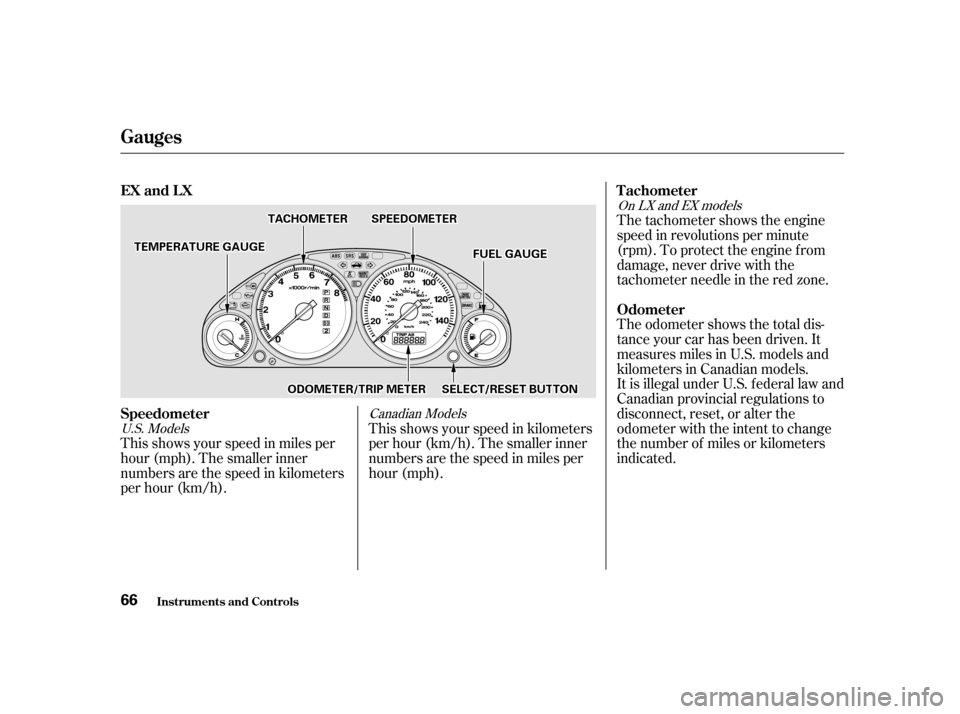Page 17 of 319

After all occupants have adjusted
their seats and put on seat belts, it is
very important that they continue to
sit upright, well back in their seats,
with their feet on the floor, until the
car is parked and the engine is of f .Sitting improperly can increase the
chance of injury during a crash. For
example, if an occupant slouches,
lies down, turns sideways, sits
forward, leans forward or sideways,
or puts one or both f eet up, the
chance of injury during a crash is
greatly increased.
In addition, an occupant who is out of
position in the f ront seat can be
seriously or f atally injured by
striking interior parts of the car, or
by being struck by an inf lating f ront
airbag. Being struck by an inflating
side airbag can result in possibly
serious injuries.
Remember, to get the best
protection f rom your car’s airbags
and other safety features, you must
sit properly and wear your seat belt
properly.
Maintain a Proper Sitting
Position
7.
Protecting Adults
Driver and Passenger Saf ety
18 Sitting improperly or out of
position can result in serious
injury or death in a crash.
Always sit upright, well back in
the seat, with your feet on thefloor.
Page 50 of 319

If the light comes on at any other
time, or does not come on at all, you
should have the system checked by
your dealer. For example:If the SRS indicator light does not
come on after you turn the ignition
ON (II).
If the light stays on after the
engine starts.
If the light comes on or f lashes on
andoff whileyoudrive.
The SRS indicator light
alerts you to a potential
problem with your f ront airbags and
automatic seat belt tensioners.
On models with side airbags, this
light will also alert you to a potential
problem with your side airbags or
passenger’s side airbag automatic
cutof f system (see page ).
When you turn the ignition ON (II),
this indicator will light brief ly then
go out. This tells you that the system
is working properly. If you see any of these indications,
your f ront or side airbags may not
deploy, your passenger’s side airbag
automatic cutoff system may not
work properly, or your seat belt
tensioners may not work when you
need them. See your Honda dealer
as soon as possible.
52
How the SRS Indicator L ight
Works
Additional Inf ormation About Your Airbags
Driver and Passenger Saf ety
51
Ignoring the SRS indicator light
can result in serious injury or
death if the airbags, cutoff
system, or tensioners do not
work properly.
Have your vehicle checked by a
dealer as soon as possible if
theSRSlightalertsyoutoa
potential problem.
Page 53 of 319

Push the button.
Select the mode.
Turn the f an on high speed.
Set the temperature control to a
comfortable setting.
High levels of carbon monoxide can
collect rapidly in enclosed areas,
such as a garage. Do not run the
engine with the garage door closed.
Even with the door open, run the
engine only long enough to move the
vehicle out of the garage.
Your car’s exhaust contains carbon
monoxide gas. You should have no
problem with carbon monoxide
entering the car in normal driving if
you maintain your car properly.
Have the exhaust system inspected
f or leaks whenever:
The car is raised f or an oil change.
You notice a change in the sound
of the exhaust.
Thecarwasinanaccidentthat
may have damaged the underside. If you must sit in your parked car,
even in an unconf ined area, with the
engine running, adjust the heating
and cooling system as f ollows:
With the trunk lid open, air f low can
pull exhaust gas into your car’s
interior and create a hazardous
condition. If you must drive with the
trunk lid open, open all the windows
and set the heating and cooling
system as shown below. 1. 2.3.4.
Carbon Monoxide Hazard
Driver and Passenger Saf ety
54 Carbon monoxide gas is toxic.
Breathing it can cause
unconsciousness and even killyou.
Avoid any enclosed areas or
activities that expose you to
carbon monoxide.
Page 61 of 319

This light has two f unctions:This light normally comes on f or a
f ew seconds when you turn the
ignition switch ON (II), and when
the ignition switch is turned to
START (III). If this light comes on at
any other time, there is a problem in
theABS.If thishappens,takethe
cartoyourdealertohaveitchecked.
With the light on, your car still has
normal braking ability but no anti-
lock. For complete inf ormation, see
page .
If this light comes on when the
engine is running, the battery is not
being charged. For complete
inf ormation, see page .
The engine can be severely damaged
if this light f lashes or stays on when
the engine is running. For complete
inf ormation, see page .
This indicator comes on when you
turn the ignition switch ON (II). It
is a reminder to check the parking
brake. Driving with the parking
brake not f ully released can
damage the brakes and tires.
If the indicator remains lit after
you have f ully released the
parking brake while the engine is
running, or if it comes on while
driving, it can indicate a problem
in the brake system. For complete
inf ormation, see page .
1. 2.
276
275 279187
Only on models equipped with ABS (see
page ) 185
Parking Brake
and Brake
System
Indicator Anti-lock Brake
System (A BS)
Indicator
Charging System
Indicator
L ow Oil Pressure
Indicator
Indicator L ights
Inst rument s and Cont rols
62 U.S. Canada
U.S. Canada
Page 63 of 319

�µ
This indicator comes on f or a f ew
seconds when you turn the ignition
switch ON (II). It will then go of f if
you have inserted a properly-coded
ignition key. If it is not a properly-
coded key, the indicator will blink
and the engine will not start (see
page ).
This indicator also blinks several
times when you turn the ignition
switch f rom ON (II) to ACCESSORY
(I) or LOCK (0). This indicator reminds you that it is
time to take your car in for
scheduled maintenance.
Ref er to the Maintenance Schedules
f or Normal and Severe Driving
Conditions on pages .
For the f irst 8,000 miles (12,800 km)
af ter the Maintenance Required
Indicator is reset, it will come on f or
two seconds when you turn the
ignition switch ON (II).Between 8,000 miles (12,800 km)
and 10,000 miles (16,000 km) this
indicator will light f or two seconds
when you f irst turn the ignition
switch ON (II), and then f lash f or
ten seconds.
If you exceed 10,000 miles (16,000
km) without having the scheduled
maintenance perf ormed, this
indicator will remain on as a constant
reminder.
80 194 200
Indicator L ights
Immobilizer System
Indicator
Maintenance Required
Indicator
Inst rument s and Cont rols
64
Page 64 of 319
Your dealer will reset this indicator
af ter completing the scheduled
maintenance. If this maintenance is
done by someone other than your
Honda dealer, reset the indicator as
f ollows.Turn of f the engine.
Press and hold the select/reset
button in the instrument panel,
then turn the ignition switch ON
(II).
Hold the button until the indicator
resets (approximately ten
seconds).
1.
2. 3.
Indicator L ights
Inst rument s and Cont rols65
Page 65 of 319

This shows your speed in miles per
hour (mph). The smaller inner
numbers are the speed in kilometers
per hour (km/h).The tachometer shows the engine
speed in revolutions per minute
(rpm). To protect the engine f rom
damage, never drive with the
tachometer needle in the red zone.
The odometer shows the total dis-
tance your car has been driven. It
measures miles in U.S. models and
kilometers in Canadian models.
It is illegal under U.S. f ederal law and
Canadian provincial regulations to
disconnect, reset, or alter the
odometer with the intent to change
the number of miles or kilometers
indicated.
This shows your speed in kilometers
per hour (km/h). The smaller inner
numbers are the speed in miles per
hour (mph).
U.S. Models
Canadian Models
On LX and EX models
Speedometer T achometer
Odometer
EX and L X
Gauges
Inst rument s and Cont rols
66
FFUUEELLGGAAUUGGEE
TTAACCHHOOMMEETTEERR
TTEEMMPPEERRAATTUURREEGGAAUUGGEE
SSEELLEECCTT//RREESSEETTBBUUTTTTOONNOODDOOMMEETTEERR//TTRRIIPPMMEETTEERR
SSPPEEEEDDOOMMEETTEERR
Page 67 of 319
This shows the temperature of the
engine’s coolant. During normal
operation, the pointer should rise
from the bottom white mark to about
the middle of the gauge. In severe
driving conditions, such as very hot
weather or a long period of uphill
driving, the pointer may rise to the
upper zone. If it reaches the red
(Hot) mark, pull saf ely to the side of
the road. Turn to page for
instructions and precautions on
checking the engine’s cooling
system.272
Gauges
Inst rument s and Cont rols
Temperature Gauge 68